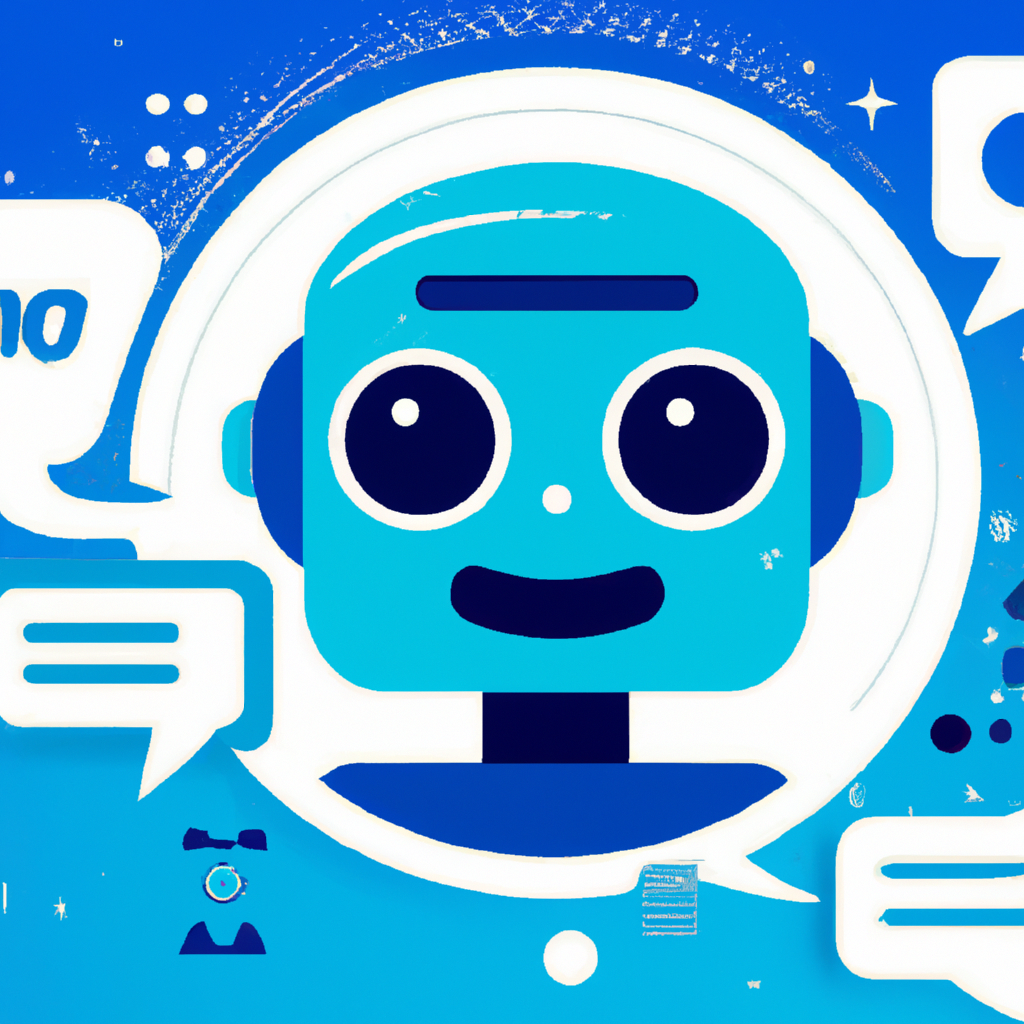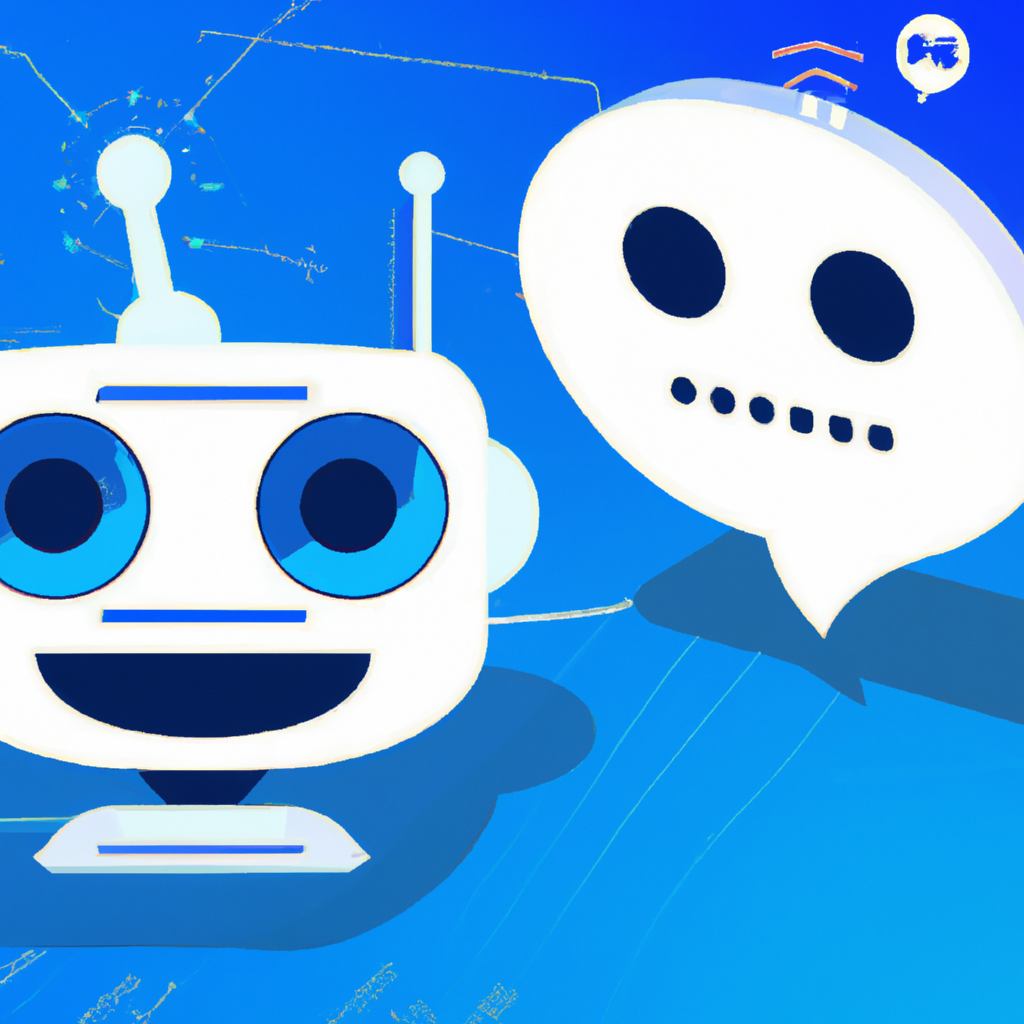Are you a small business owner wondering if there are chatbot solutions tailored specifically to your needs? Look no further! In this article, we will explore the world of chatbot technology and its potential benefits for small businesses. From enhancing customer service to increasing efficiency, chatbots have the potential to revolutionize the way you interact with your customers. So, let’s dive into the world of chatbot solutions and discover how they can transform your small business.

The Importance of Chatbot Solutions for Small Businesses
How Chatbots Can Benefit Small Businesses
Chatbot solutions have become increasingly popular among small businesses due to their numerous benefits. One of the main advantages of using chatbots is their ability to provide instant customer support and assistance. With a chatbot, small businesses can automate their customer service process, ensuring that customer inquiries and concerns are addressed promptly.
Another major benefit of chatbots is their ability to handle multiple interactions simultaneously. Unlike human agents, chatbots can engage with several customers at once, providing efficient and timely responses. This feature is especially beneficial for small businesses with limited resources, as chatbots can handle a significant amount of customer interactions without the need for additional staff.
Furthermore, chatbots can help small businesses enhance customer engagement and improve overall customer experience. By leveraging artificial intelligence (AI) and natural language processing (NLP) capabilities, chatbots can understand and respond to customer queries in a conversational manner. This not only creates a more interactive and personalized experience but also increases customer satisfaction and loyalty.
Why Small Businesses Should Consider Using Chatbots
Small businesses often face unique challenges such as limited budgets, resources, and manpower. In such situations, chatbot solutions can offer a cost-effective and efficient way to handle customer inquiries and streamline business operations.
By implementing chatbots, small businesses can reduce the workload on their customer service team, freeing up time and resources for other important tasks. This allows small businesses to focus on core business activities while still providing excellent customer service.
Chatbots also offer scalability and flexibility, allowing small businesses to handle increased customer inquiries without the need to hire additional staff. As small businesses grow, chatbots can easily adapt and handle the increasing volume of customer interactions, ensuring a seamless customer experience.
Moreover, chatbots can contribute to the overall growth and success of small businesses by generating leads and driving sales. Through personalized and targeted interactions, chatbots can engage customers, provide product recommendations, and guide them through the purchasing process. This can lead to increased conversions and revenue for small businesses.
Challenges Small Businesses Face in Implementing Chatbots
While chatbots offer numerous advantages, small businesses may face certain challenges when implementing chatbot solutions. One of the main challenges is understanding the needs and goals of the business. It is important for small businesses to identify the specific areas where chatbots can be most beneficial and align their implementation strategy accordingly.
Another challenge is assessing the available resources. Small businesses may have limited budgets and technical expertise. It is important to evaluate the resources required for implementing and maintaining chatbot solutions, such as development costs, hosting, and integration with existing systems.
Additionally, evaluating the integration and compatibility of chatbot solutions with existing communication channels and software can be a challenge for small businesses. Ensuring a seamless integration and compatibility is essential for providing a consistent and efficient customer experience.
Another factor to consider is the scalability and flexibility of chatbot solutions. Small businesses need to ensure that their chosen chatbot solution can accommodate their growth and handle increased customer interactions effectively.
Lastly, comparing pricing and cost-effectiveness of different chatbot solutions is crucial for small businesses. It is important to consider the return on investment and choose a solution that offers the best value for money.
Factors to Consider When Choosing Chatbot Solutions
Understanding the Needs and Goals of the Small Business
Before choosing a chatbot solution, small businesses need to understand their specific needs and goals. This includes identifying the areas where chatbots can be most beneficial, whether it is customer support, lead generation, or sales assistance. By understanding their needs and goals, small businesses can choose a chatbot solution that aligns with their business objectives.
Assessing the Available Resources
Small businesses need to assess their available resources, both in terms of budget and technical expertise. This includes evaluating the costs associated with developing and maintaining a chatbot solution, as well as the required technical skills. Depending on their resources, small businesses can choose between building their own chatbot or opting for a third-party platform.
Evaluating the Integration and Compatibility
It is important for small businesses to evaluate the integration and compatibility of chatbot solutions with their existing communication channels and software. This includes assessing whether the chatbot can seamlessly integrate with their website, social media platforms, and other customer support tools. Ensuring compatibility is crucial for providing a smooth and consistent customer experience.
Considering the Scalability and Flexibility
Small businesses need to consider the scalability and flexibility of chatbot solutions. They should choose a solution that can handle increased customer interactions as their business grows. Additionally, the chatbot solution should be flexible enough to adapt to changes in their business processes and customer needs.
Comparing Pricing and Cost-effectiveness
Pricing and cost-effectiveness are important factors to consider when choosing chatbot solutions for small businesses. Small businesses should compare the pricing plans of different chatbot providers and evaluate the return on investment. It is important to choose a solution that offers the desired features and functionality at a reasonable cost.

Types of Chatbot Solutions Suitable for Small Businesses
Rule-Based Chatbots
Rule-based chatbots, also known as scripted or decision tree chatbots, follow a predefined set of rules to interact with users. These chatbots are programmed with a series of if-then statements and can provide answers based on specific keywords or phrases. Rule-based chatbots are relatively simple to implement and are suitable for small businesses with straightforward customer inquiries.
Artificial Intelligence (AI) Chatbots
AI chatbots leverage machine learning algorithms and natural language processing (NLP) capabilities to interact with users in a more conversational and human-like manner. These chatbots can understand and respond to context and can learn from past interactions to improve their performance. AI chatbots are suitable for small businesses that require more advanced and personalized customer engagement.
Hybrid Chatbots
Hybrid chatbots combine the capabilities of both rule-based and AI chatbots, providing a balance between predefined rules and machine learning. These chatbots can handle both simple and complex inquiries, offering more flexibility and scalability. Hybrid chatbots are suitable for small businesses that need a versatile chatbot solution to handle a variety of customer interactions.
Third-Party Chatbot Platforms
Third-party chatbot platforms offer ready-to-use chatbot solutions that can be easily integrated into small business websites or social media platforms. These platforms provide a range of features and customization options, allowing small businesses to create and deploy their chatbots with minimal technical knowledge. Third-party chatbot platforms are suitable for small businesses with limited resources and technical expertise.
Virtual Assistants as Chatbot Solutions
Virtual assistants, such as Amazon Alexa or Google Assistant, can serve as chatbot solutions for small businesses. These virtual assistants can be integrated into various devices and platforms, providing an interactive and voice-enabled customer experience. Virtual assistants are suitable for small businesses that want to offer a hands-free and convenient way for customers to interact with their business.
Popular Chatbot Solutions for Small Businesses
Chatfuel
Chatfuel is a popular chatbot platform that allows small businesses to create AI chatbots for Facebook Messenger. It offers a user-friendly interface and a range of features, including messaging sequences, chat blasting, and analytics. Chatfuel is suitable for small businesses that want to leverage the reach of Facebook Messenger to engage with their customers.
ManyChat
ManyChat is another widely used chatbot platform that integrates with Facebook Messenger. It offers a drag-and-drop interface and a variety of templates and automation tools. ManyChat is suitable for small businesses that want to automate their customer support and capture leads through Facebook Messenger.
Drift
Drift is a chatbot platform that focuses on conversational marketing and sales. It offers features such as live chat, lead generation, and appointment scheduling. Drift is suitable for small businesses that want to enhance their sales and marketing efforts through personalized and interactive chatbot interactions.
Tars
Tars is a chatbot platform that allows small businesses to create AI chatbots for websites and landing pages. It offers advanced features such as machine learning, conversational forms, and integration with popular marketing tools. Tars is suitable for small businesses that want to engage website visitors and capture leads through interactive chatbot conversations.
MobileMonkey
MobileMonkey is a chatbot platform that integrates with various communication channels, including Facebook Messenger, SMS, and web chat. It offers features such as audience targeting, automation, and analytics. MobileMonkey is suitable for small businesses that want to engage with customers through multiple channels and drive conversions.

Features to Look for in Chatbot Solutions for Small Businesses
Ease of Use and User Interface
Small businesses should look for chatbot solutions that offer a user-friendly interface and easy-to-use features. The chatbot platform should have a drag-and-drop interface or simple customization options, allowing small businesses to create and manage their chatbots without extensive technical knowledge.
Customization and Personalization
Chatbot solutions should offer customization options, allowing small businesses to tailor the chatbot’s appearance, tone, and responses to reflect their brand identity. Additionally, the chatbot should be capable of personalizing interactions based on user preferences and past behavior.
Natural Language Processing (NLP) capabilities
Chatbots with natural language processing capabilities can understand and respond to user queries in a more conversational and human-like manner. Small businesses should look for chatbot solutions that offer NLP capabilities to provide a seamless and interactive customer experience.
Integration with Multiple Communication Channels
Chatbot solutions should be able to integrate with various communication channels, such as websites, social media platforms, and messaging apps. This allows small businesses to reach their customers through their preferred channels and provide a consistent and unified customer experience.
Analytics and Reporting Tools
Chatbot solutions should offer analytics and reporting tools to track and analyze the performance of the chatbot. Small businesses should look for solutions that provide metrics on engagement, conversion rates, and customer satisfaction. These insights can help small businesses optimize their chatbot conversations and improve overall performance.
Steps to Implement Chatbot Solutions for Small Businesses
Identifying Use Cases and Goals
Small businesses should start by identifying the specific use cases and goals for implementing chatbot solutions. This includes determining the areas where chatbots can provide the most value, such as customer support, lead generation, or sales assistance.
Choosing the Right Platform
After identifying the use cases and goals, small businesses should research and choose the chatbot platform that best fits their needs. Factors to consider include ease of use, customization options, integration capabilities, and pricing.
Designing Chatbot Conversations and Flows
Once the platform is selected, small businesses need to design the chatbot conversations and flows. This involves mapping out the different customer interactions and creating a logical flow of responses. It is important to consider different user queries and provide clear and helpful information.
Testing and Iterative Improvements
Small businesses should test the chatbot before deploying it to ensure that it functions properly and provides the desired user experience. Feedback from users can be valuable for identifying areas of improvement and making iterative changes to the chatbot.
Promoting and Training the Chatbot
After testing and refining the chatbot, small businesses should promote it to their customers and train their customer service team on how to effectively use and manage the chatbot. This includes educating customers on the benefits of using the chatbot and providing training materials for the customer service team.

Best Practices for Utilizing Chatbot Solutions for Small Businesses
Maintaining a Conversational Tone
Small businesses should ensure that their chatbot maintains a conversational tone when interacting with customers. This helps create a more engaging and personalized experience. The chatbot should use natural language and avoid sounding robotic or formal.
Ensuring Quick Response Time
Chatbots should be programmed to provide quick responses to customer queries. Small businesses should aim to minimize response times and set expectations with customers regarding the chatbot’s availability and response time.
Providing Clear and Helpful Information
Chatbots should provide clear and helpful information to customers. Small businesses should ensure that the chatbot is accurately programmed to answer frequently asked questions and has access to up-to-date information. If the chatbot is unable to answer a specific query, it should provide alternative options or escalate the issue to a human agent.
Monitoring and Analyzing Chatbot Performance
Small businesses should regularly monitor and analyze the performance of their chatbot to identify any issues or areas for improvement. This includes reviewing analytics data, collecting customer feedback, and conducting regular assessments of the chatbot’s effectiveness.
Regularly Updating and Improving the Chatbot
Chatbots should be continuously updated and improved to enhance their performance. Small businesses should regularly review and optimize the chatbot’s conversations and flows based on customer feedback and data insights. This ensures that the chatbot remains relevant and effective over time.
Potential Limitations of Chatbot Solutions for Small Businesses
Lack of Human Touch and Empathy
One of the limitations of chatbot solutions is the lack of human touch and empathy. Chatbots may struggle to understand complex emotions or provide the same level of empathy as a human agent. Small businesses should be aware of this limitation and ensure that their chatbot’s responses are clear and empathetic.
Complexity in Handling Complex Queries
While chatbots can handle simple and straightforward queries effectively, they may struggle with complex or nuanced inquiries. Small businesses should consider the limitations of their chatbot’s capabilities and provide alternative channels or escalation options for customers with specialized or complex queries.
Language and Cultural Limitations
Chatbots may face challenges in understanding and responding to different languages and cultural nuances. Small businesses should consider the demographics and cultural diversity of their customer base and ensure that their chatbot solutions are capable of handling various languages and cultural differences.
Potential Privacy and Security Risks
Chatbot solutions may involve the collection and storage of customer data. Small businesses should implement appropriate security measures to protect customer information and comply with privacy regulations. It is important to choose chatbot solutions that prioritize data security and encryption.
Dependency on Internet Connectivity
Chatbots rely on internet connectivity to function properly. Small businesses should ensure that their internet connection is reliable and uninterrupted to avoid any disruptions in the chatbot’s availability. It is also advisable to have alternative communication channels in place in case of internet outages.

Case Studies: Successful Chatbot Implementations in Small Businesses
Case Study 1: XYZ E-commerce Store
XYZ E-commerce Store implemented a chatbot solution to improve their customer support and enhance their online shopping experience. The chatbot was programmed to answer frequently asked questions, provide product recommendations, and help with order tracking. As a result, the store saw a significant reduction in customer inquiries and improved customer satisfaction.
Case Study 2: ABC Restaurant
ABC Restaurant implemented a chatbot solution to streamline their reservation process and provide personalized dining recommendations. The chatbot was integrated with the restaurant’s website and social media platforms, allowing customers to make reservations, view menus, and receive tailored suggestions. This resulted in increased reservation bookings and improved customer engagement.
Case Study 3: PQR Consulting Agency
PQR Consulting Agency implemented a chatbot solution to automate their lead generation process and improve their sales funnel. The chatbot was programmed to capture leads, qualify prospects, and schedule consultations. The agency experienced a significant increase in lead conversions and a more efficient sales process.
In conclusion, chatbot solutions have become invaluable tools for small businesses, providing numerous benefits such as instant customer support, enhanced customer engagement, and increased efficiency. By considering the factors to choose the right chatbot solution, small businesses can leverage the power of chatbots to improve their operations, drive sales, and deliver exceptional customer experiences. While there are potential limitations and challenges in implementing chatbots, small businesses can overcome them through careful planning, continuous improvement, and adherence to best practices. With the right chatbot solution in place, small businesses can thrive in today’s digital era and stay ahead of the competition.
